The Power of Being Powerless
by Fr G. Chris Saenz
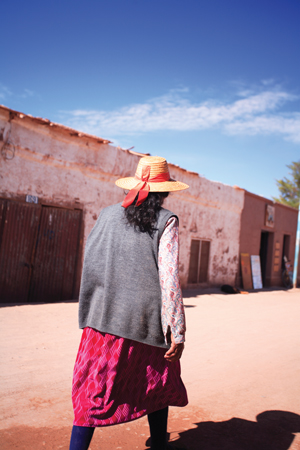
A Chilean Woman
Father Saenz, a frequent contributor to MISYONonline.com, was ordained in 2000. He is from Omaha, Nebraska, USA, where the Columban headquarters in that country are located. He spent part of his formation period in the Philippines. Here he tells an extraordinary story of welcoming new life.
Three or four years ago I was in Tasmania, Australia, for mission promotion work. A school girl in St Patrick’s Catholic College of Launceston asked, ‘What is the hardest thing about working with people in poverty?’ The question stumped me a bit and made me think. Generally, it’s the youth who ask the deep theological questions. After reflecting for a moment, I answered her, ‘the feeling of being powerless to change the situation of the person in poverty’.
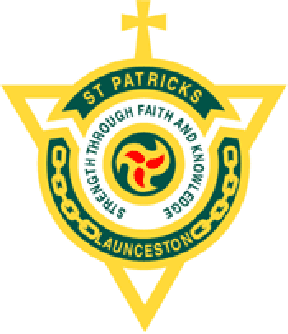
Crest of St Patrick’s College, Launceston
In the missionary vocation one has to be comfortable with being uncomfortable. Often one has to leap without knowing where to land and trust it will all work out. One has to leave the ‘black and white’ world of certainty and desire to be in the ‘grey’ world of doubt. One has to discover power in being powerless. Doesn’t sound easy, and it’s not. So why do it? I do it for people like ‘Maria’.
In my years in Chile Maria is truly one of the poorest people I have met. She used to come to the parish to talk to another Columban priest. She was also friendly with the parish secretary and I often would see her ‘hanging about’ in the office. I didn’t have much to do with her and really didn’t pay much attention to her. When the other Columban priest left the parish he referred Maria to me. So one day she showed up on the doorstep wanting to talk to me. I wasn’t reluctant to talk to her but not overly enthused either. I assumed that she wanted money. I knew she was poor but didn’t know how poor.
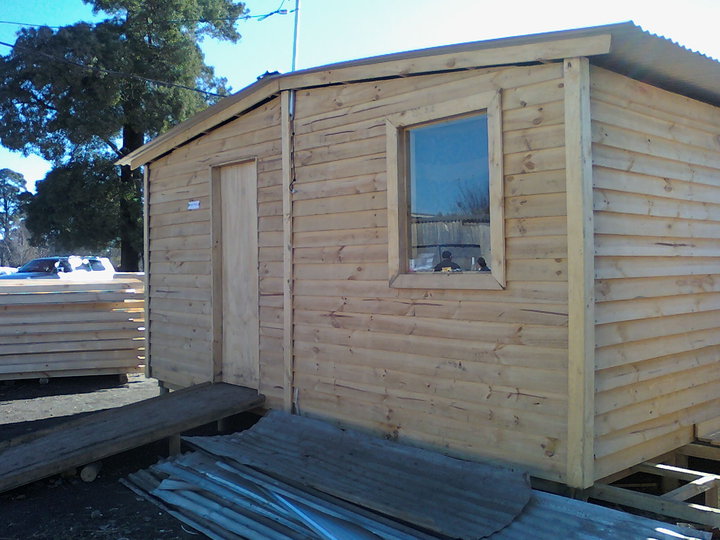
Mediagua in Chile [Wikipedia]
Maria lived in a ‘mediagua’, a simple pre-fabricated wooden house in Chile that can be built in a day. There was not much to her home. Her only means of living, from what I knew, was the selling of small handicrafts she made from old yarn and other materials. Sometimes she would come to the church selling her handicrafts. And out of pity, I must confess, I would buy some from time to time. I figured it was honest pay for honest work. Yet, much to my surprise, she never begged for money. Most often she came to the church to ‘desahogarse’ - a Chilean phrase that means ‘to let it all out’. It was during these ‘desahogos’ I discovered that she was a mother.
Students in Chile building a mediagua
Maria was the mother of two children who were taken from her by social services. She suffered from psychological ailments like depression and was unable to care for her children. She never mentioned their father and it seemed that he wasn’t in the picture. She remarked to me that her only true desire was to regain custody of her children but that she was a single mother, too poor, too sick, and with no job to be able to care for them. Maria struggled to find odd jobs but often could not hold on to them. Listening to her story made me feel powerless to help her. There was nothing I could do for her. She in return never asked for any help. I felt more pity for her. I prayed to God, ‘What is the point of all of this?’
One day the secretary came to inform me that Maria was waiting to talk to me. I received Maria and noticed she had a big smile on her face. ‘Father, I came to share my good news with you!’ she said. I was curious. Was she miraculously cured of her aliments? Would she get her children back? Was there a sudden monetary fortune? I waited for the surprise. ‘I’m pregnant’, she blurted. I felt my insides crashing. ‘What was she thinking?’ I thought, ‘so poor and now pregnant.’ ‘With twins,’ she added. It was like a punch to the stomach. I really thought God was playing a cruel joke on both of us.
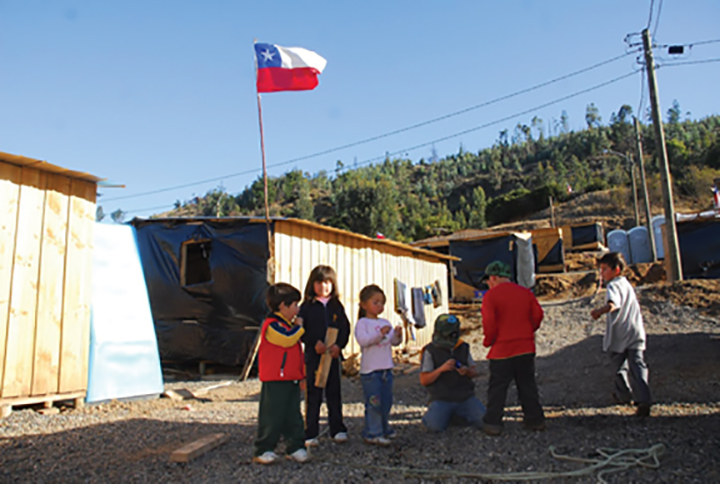
Children in Chile outside mediaguas
Then I looked at her face. Her smile was radiant. It was the first time I saw her truly happy. ‘Father, I am so happy’, she gleefully continued, ‘that God considered me worthy to give life again. I am truly blessed!’ It was as if I heard Jesus’ mother speaking into my ears. I had thought that Maria wanted me to do something about her situation but in reality she just wanted a compassionate hear to listen to her. She just wanted someone to share her joy. I began to wonder if my pity for Maria was more moved by pity for myself - me being helpless. Yet, being helpless made me powerless with Maria. It was something we both shared together. And that is the power of mission. Two people, worlds apart with nothing in common, find commonality in being powerless. It made us equals.
After that I used to see Maria walking in the street with a man, the father I assumed. They embraced and looked happy as a couple. In time Maria did regain custody of her two older children. After that I never saw her again. I don’t know her fate, where she is or what she does. But that is mission. Being powerless - not having all the answers or certainty - but trusting that God is doing what God does best. The power of being powerless.
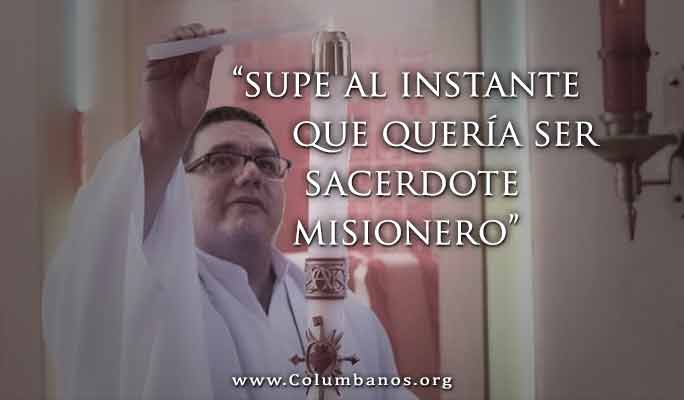
‘I knew instantly I wanted to be a missionary priest.’
